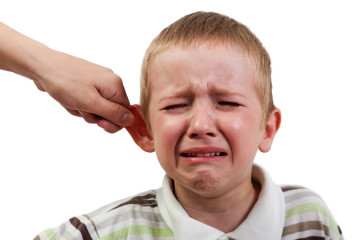Trust! The One Thing That Can Change Everything

By Thomas Kuster May 10, 2020
Many of us have probably considered, in one way or another, what we value most in a relationship. We might not say it explicitly, but we have thought about it.
Recently, I asked some people to express it. What is the number one value you want in your relationships? The most-reported value people said they wanted is trust. I am not surprised, but that has me more curious than ever about the subject.
Risking to trust, in return for the adventure of being in love, opens the heart to growing and expanding; but the loss or lack of trust can close it too. Romantic love is an act of faith, and trust is required. When a connection is new, there is not much to go on except your feelings and feelings are not exceptionally reliable.
There are many conceptual views of trust, what it is, and what it is not, but here is the real deal:
The word comes from the HEBREW, Batach, which means to be carefree, free of concern.
The Webster definition: Confident; a reliance or resting of the mind on the integrity, openness, justice, friendship, or other sound principles of another person.
The Pathway to Trust
Many couples I talk to will tell me how they need to rebuild or restore trust in their relationships. It all sounds very reasonable until you follow the thought process all the way through only to find you cannot do it; you cannot restore trust in and of itself. Maybe trust then, is the endgame, the response – the outcome.
So then, what is the pathway to trust? Remembering that trust is what we value most, we might consider putting our attention on trustworthiness. Isn’t that what is measurable and definable?
To be trustworthy is merely being worthy of trust, and this is where the plot thickens. There needs to be a basis for giving our trust, and our partners need a basis for giving theirs. That basis consists of actions and attitudes that express I’m trustworthy. And we all do not see that basis the same way. In fact, everyone is trustworthy; one only needs to watch the actions of another to determine in what ways they can be trusted or not.
After interviewing a dozen or so individuals and couples, we all agree on three elements regarding trustworthiness in a mate, and they are:
Capability
Honesty
Reliability
If we develop our trustworthiness in the eyes of our partners, then that is the basis for winning trust. There needs to be evidence that says we are trustworthy.
Most everyone will bend the truth when our perceived survival or reputation is at stake. If deception can save us – we will likely fib. Pamela Meyer, Fraud Investigator and author of Lie Spotting, says, “We all lie; we are all liars. Sometimes we will spin a white lie to spare someone else’s feelings. There are many reasons we do it, but we all do it”. OUCH! And get this, we are also willing to be lied to if we get what we want – lies can connect us to our fantasies.
Beauty, wealth, status, peace of mind, fame, love, and romance any one or more of these are desires where one might get seduced. Know what you are hungry for, and you are less likely to be deceived.
Consider a few of these scenarios as it relates to one’s vulnerable areas in life:
~ There is a commercial that promises to ERASE the puffiness under the eyes – instantly!
~ There is a pill that swears you will not need exercise, just one tablet at night, and the extra pounds will disappear.
~ Shampoos, conditioners, and potions to keep your hair from falling out.
And these when developing relationships:
~ There is a person notorious for cheating but promises to love exclusively.
~ Your spouse has an affair but promises it will never happen again.
~ Money disappears from your bank account, but the culprit swears it was just a loan.
Consider the NETFLIX series based on real events, Dirty John. Debra Newell goes on a blind date with a man she met on the internet. The lies he tells are evident to the viewer and her family, but there is something she yearns for, and John is a master at fulfilling that yearning.
Capability, Honesty, and Reliability
I wonder then if both parties are dishonest the same way, does that foster trust? If both agree on what’s gossip and what’s just fun talk at another’s expense, does that foster trust? If both agree that taking what does not belong to them is OK, will that foster trust?
So, trust then is a direct parallel to one’s perception of trustworthiness and one’s integrity baseline. Capability, Honesty, and Reliability now have a different interpretation related to being trustworthy.
In what areas are he/she/I capable
Managing children
Setting up travel or parties
Cooking dinner or grocery shopping
Getting our schedules worked out
Opening up about difficult topics and matters
Owning and dealing with mistakes
Paying the bills and being on time
In what areas are he/she/I honest: where do we draw the line?
What about income taxes; cheat – just a little
Lying about a headache to escape (sex, party or gathering)
Transparent or harboring secrets
Speaking the truth – is white lying acceptable
Gossip or complaining about others
In what ways is he/she/I reliable
Showing up on time or early
Doing what we say when we say we will do them
Remembering birthdays, anniversaries and essential dates Honoring things that matter
Actions aligning with words
Keeping secrets in confidence
Is trusting in (yours/their) nature
To this end, trust is the highest held value in relationships. Here is what we know for sure ~ if you pay attention to the actions and reactions of yourself and others, you will see a basis for trustworthiness. Use the list above to get started in revealing agreed-upon principles. Getting aligned with your beloved and measuring against the same principles will strengthen the bond.
We all have the opportunity and the ability to raise our standards, to form a higher basis in becoming more trustworthy and earning more TRUST. Fostering trust within your relationships can make them better, more fulfilling, more meaningful, and longer-lasting.Thomas Kuster, Relationships and Couples Coach at The Stages of Love Thomas Kuster is the founder of The Stages of Love. He has trained inside the work of Peter Gerlach – Parts and The Internal Family, Patricia McDade – Consulting Alliance, and is certified through the HEARTMATH Institute and the Awakening Coaching Alliance. His systematic approach, The Heart Path, along with his unique point of view, helps couples and individuals see new possibilities for their relationships. Thomas started his coaching career in 1995. He designed and produced a classroom series for couples called Partners for Life, partners committed to a lifetime versus a life sentence. Regular Contributor to AllAgeless.com and Thrive Global.
sooperarticles.com







No Comment